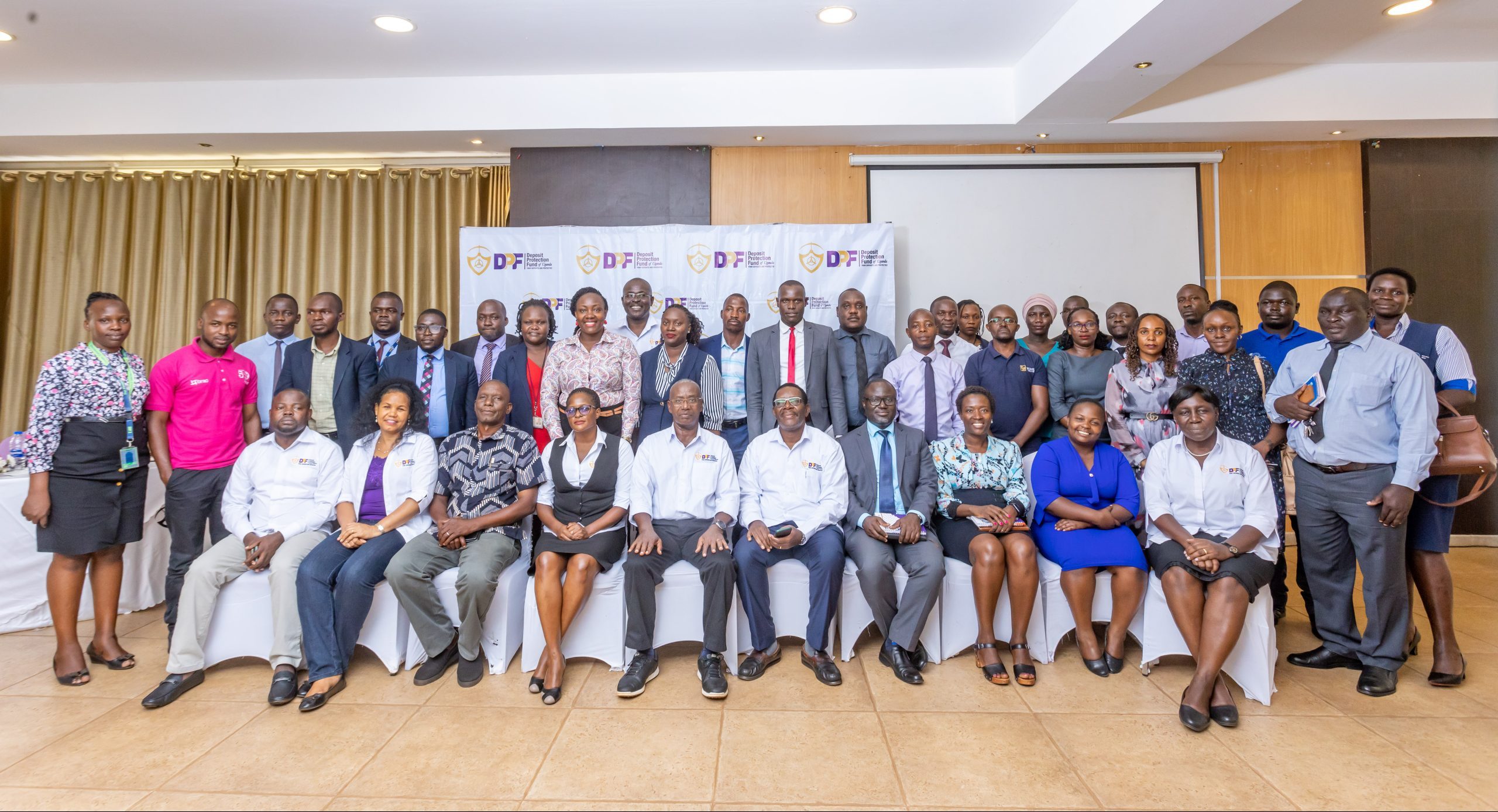
Deposit Protection Fund holds the maiden Town Hall meeting in Jinja City – October 26, 2023
The Deposit Protection Fund of Uganda held its inaugural townhall engagement in the scenic Jinja city in Eastern Uganda. The Town Hall engagements, which shall be held bi-annually, are a fulfillment of the request by the Hon. Matia Kasaija, Minister of Finance, Planning and Economic Development for the Board of Directors of the Fund to undertake interactions with the public as part of the awareness efforts of the Fund.
This hall at Source of the Nile Hotel in Jinja city was filled to capacity by enthusiastic participants drawn from a broad spectrum of the public including private sector actors, government agencies, the business community, local and national political leaders.
The DPF Board Chairman, Mr. Ben Patrick Kagoro, the convenor/host of the townhall engagement delivered a presentation about the Deposit Protection Fund and the role of deposit insurance in contributing to stability of the financial sector. His presentation focused on the genesis of the DPF, its role and functions, the governance structure, funding and asset structure and the Fund’s membership and coverage.

The carefully packaged presentation was aimed at ensuring that the DPF message was delivered in a manner that is comprehensible to people of all walks of life. The Board Chairman’s message was intended to unpack the concept of deposit insurance to enable the unsophisticated members of the public to become informed about the workings of the Fund.
Prior to the Board Chairman’s remarks, the public was welcomed to this first ever engagement by Ms. Roy Nambogo, a member of the DPF Board of Directors. Ms. Nambogo noted that public awareness was one of the key roles of the Fund as enshrined in the Financial Institutions (Amended) Act, 2016. She informed the audience that going forward, the engagements would be held twice a year across the country to provide a platform for the DPF Board to interface with the public and also to enable the public to engage directly with regulated financial institutions.

The townhall meeting featured an interactive question-and-answer session, which allowed participants to directly engage with DPF officials. Some of the key issues raised by participants were; the Fund’s position on customer complaints about financial Institutions, the Fund’s exclusion of SACCOs from coverage, the Fund’s plans to revise the deposit protected limit, among others.
The Board Chairman’s presentation highlighted the following areas:
i. Genesis of the DPF: Participants were informed that the Deposit Protection Fund was established in 1994 following the enactment of the Financial Institutions Statute (FIS) 1993, continuing in force under the Financial Institutions Act (FIA) 2004. The Fund was previously managed by Bank of Uganda and it became an autonomous institution in 2016 following the amendment of the FIA, 2004.
ii. Deposit Insurance limit and coverage: The Board Chairman informed participants that the current protected limit is UGX 10million which was a revision from UGX 3million in 2019. He further noted that any amount above the protected limit would be handled after the liquidation process. The Chairman thence urged the public to bank with confidence inn regulated financial institutions well assured their deposit are well protected by the Fund.
The Chairman also informed participants that it is mandatory for all financial institutions regulated and supervised by Bank of Uganda to contribute to the Fund annually. He noted that currently there were 33 contributing institutions comprising of 25 Commercial Banks, 4 Credit Institutions and 4 Microfinance Deposit-taking Institutions.
iii. DPF’s roles and functions: Participants were informed of the Fund’s roles including paying depositors their protected deposits in the event of closure of a Contributing Institution; being a receiver or liquidator of a closed Contributing Institution if appointed by Bank of Uganda for that purpose; performing any other duty as may be conferred by law and contributing to financial sector stability through public awareness. To this end, participants were informed that the Fund does not handle customer complaints about Contributing Institutions which are still functional, as this role is a preserve of their supervisor, the Bank of Uganda.
iv. Update of personal information: Participants were encouraged to ensure that they maintained up to date personal information with their respective financial institutions because the Fund relied on the updated information to facilitate fast and efficient payout, incase need arose.
While responding to comments from participants, the CEO of the Deposit Protection Fund Dr. Julia Oyet, emphasized the Fund’s contributory role to the stability of the financial sector through building confidence of the public in the banking system. She advised participants to avoid rumors, which she said were detrimental to the performance of the banking system and could lead to bank failures or crises. She reassured the participants that the DPF was committed to its mandate as enshrine in the law.

The townhall meeting concluded on a positive note with participants expressing appreciation for the transparency and openness exhibited by the Deposit Protection Fund as well as the enlightenment received from the Fund on deposit insurance and financial literacy matters.





